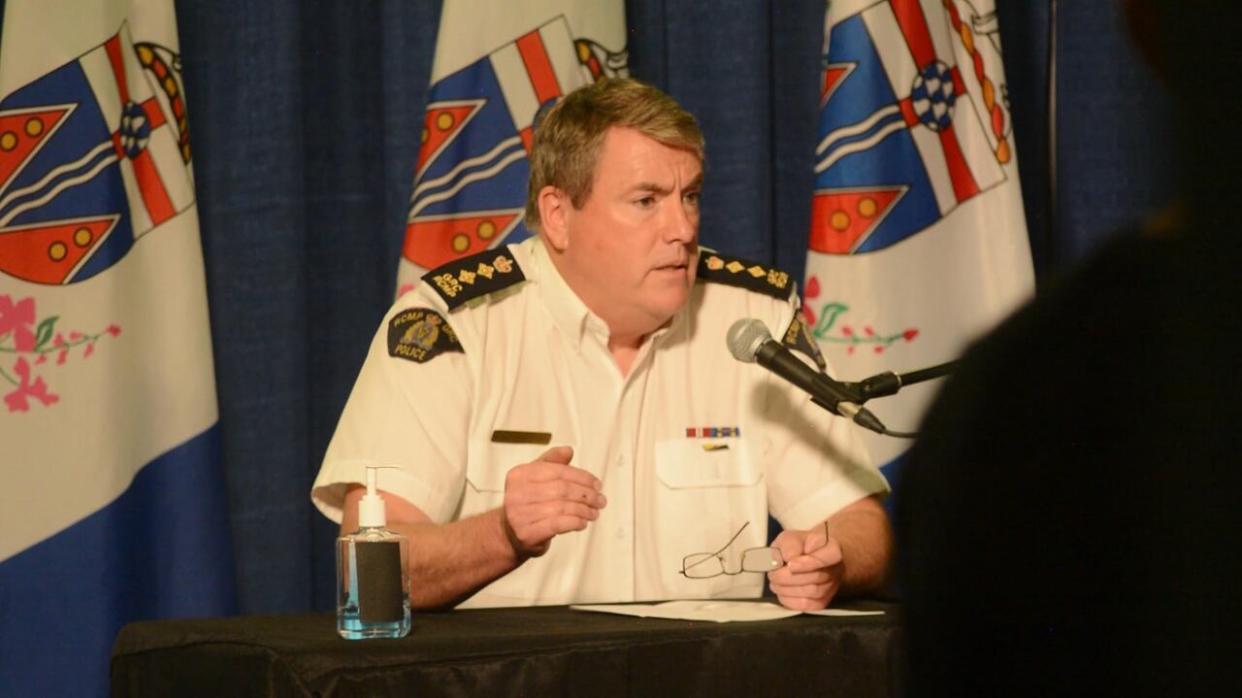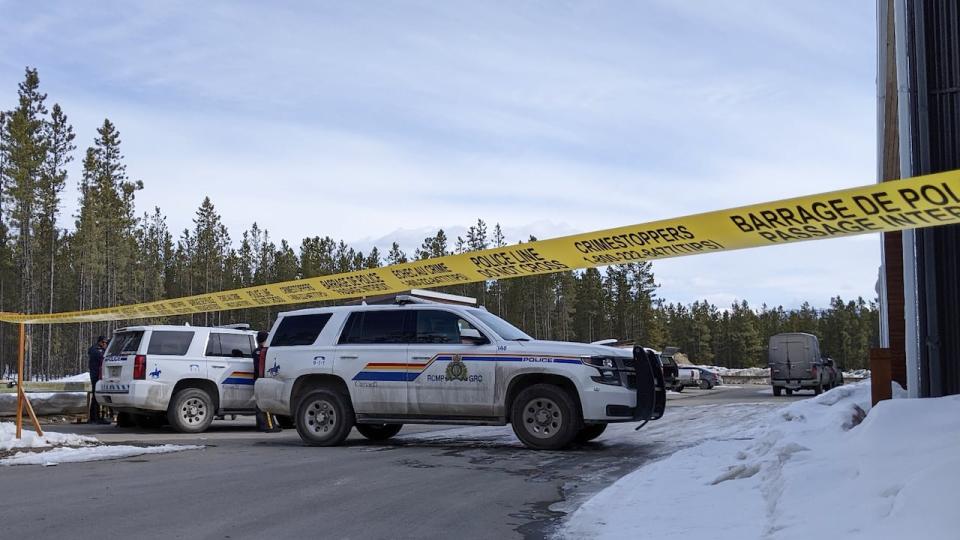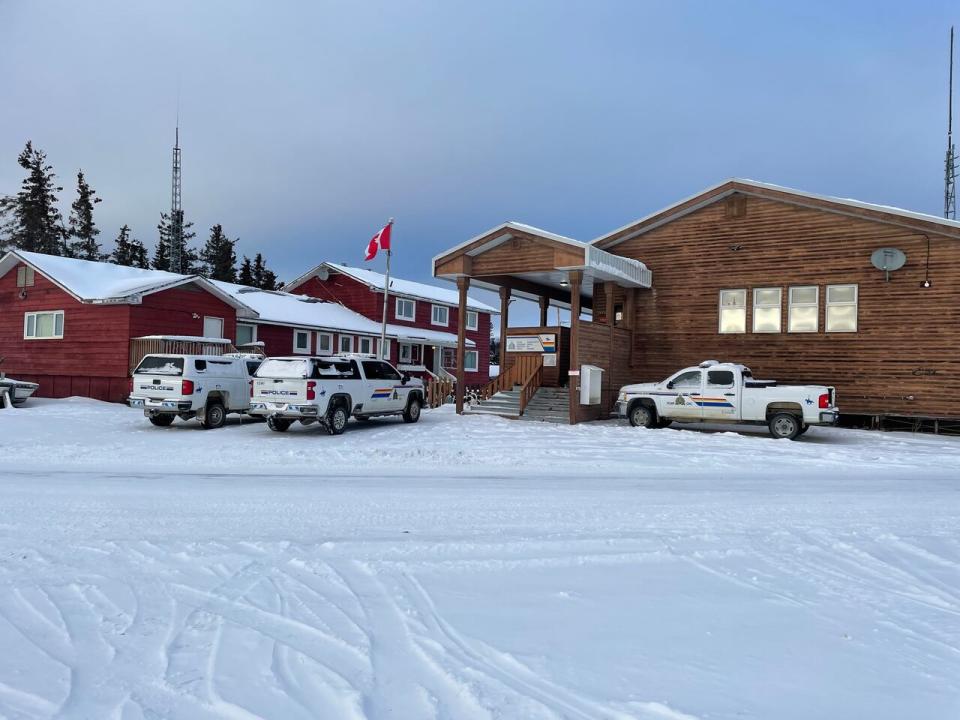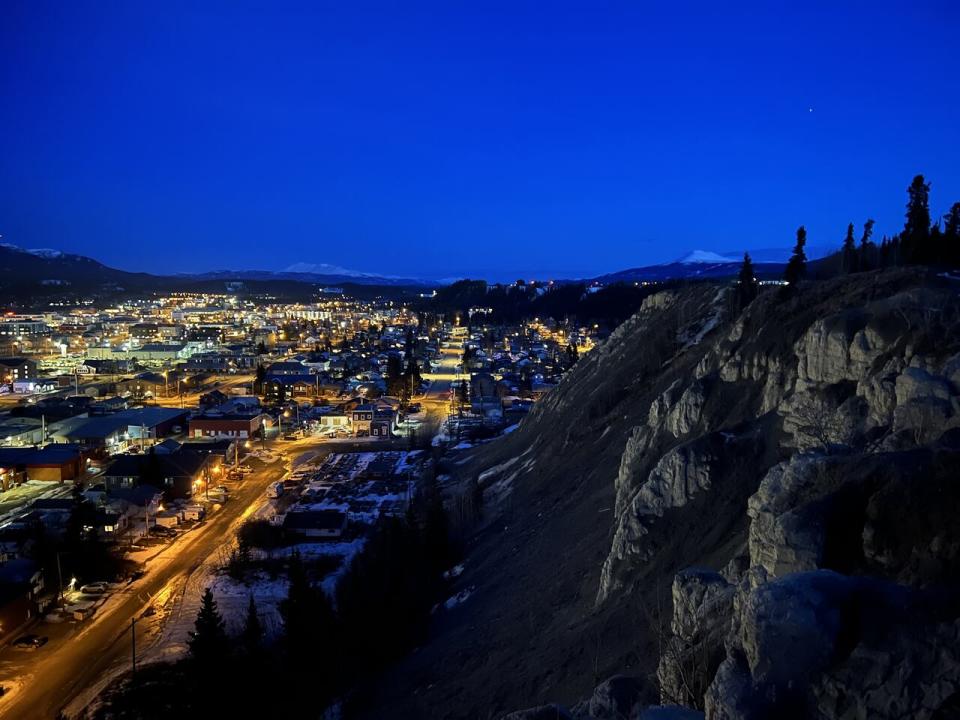Q+A | Head of Yukon RCMP on 'one of the largest' additions of new staff to the local force

Yukon is getting more than a dozen new RCMP officers, something Chief Supt. Scott Sheppard sees as "validation" of the work the force does in the territory.
It also represents a changing territory, he says, where the population continues to steadily grow — bringing with it an "increase in some criminal activity."
Sheppard says the police force will be adding eight and a half new positions funded through the Territorial Police Services Agreement, as well as six new positions funded through the First Nations and Inuit Policing Program. Both involve cost-sharing between the territorial and federal governments.
"It certainly is one of the largest additions. There's no doubt in my mind," he said.
Sheppard spoke to Yukon Morning host Elyn Jones about the growing local police force.
This conversation has been edited for length and clarity.
This is coming at a time in North America when people are calling, in some cases, to defund the police force and that kind of thing. Why are we adding more here?
I think anyone who sits down and thinks for about 30 seconds about the notion of defunding the police would probably see some of the holes in their own argument. But it's a reflection of what's going on in Yukon.
There's a lot of activity. I mean, any place where you have an economy that is booming and there's lots of activity, lots of industry, lots of commercial opportunities, unfortunately crime is a component of that. You know, we hear a lot from the downtown business community, Chamber of Commerce, City of Whitehorse. We've heard from people their sense of safety at times is not what they would like it to be and not what they've known it to be in Whitehorse. So we'll be looking at how we can contribute more to that.

RCMP in the Whitehorse neighbourhood of Whistle Bend in April 2022. (Chris Windeyer/CBC)
Certainly in the communities I think you won't see a significant change in the level of engagement because we already have a very high level of engagement. But in those communities where there are extra things going on, we're going to be flexible enough that we can move some of these resources around. So if something is surging over in this area, we can move resources and just try and be creative and flexible with what we have.
But is policing the answer to our challenges here in the territory, when it comes to crime and social difficulties and drugs and that kind of thing?
It is not the answer, but it's one of the few answers or solutions we have.
I always find it interesting when we talk about other parts of the community and other interest groups talking about, you know, how do we address some of these issues — there's often a lot of focus on policing. And we often want to start on the different side of the continuum. We're talking about issues that are borne out of homelessness, maybe trauma, education, you know poverty, all these things. And so we know where these problems start. But we focus our attention on the opposite end of the continuum sometimes.
But that I can say quite honestly that is not the case in Yukon. There's enough work for us on that end of the continuum to keep busy. But I think you can see in the government's budget, it's a fairly balanced approach in terms of where they're putting their money.
When it comes to trying to fill these positions, how challenging is that in policing?
Policing, much like many other professions, is going through this period of time where there's just fewer people wanting to do the work.
Policing has never been an easy job and it's becoming increasingly challenging, especially with sort of that narrative and that negativity that seems to be expressed by so many people and across so many layers of our community. But it is still a rewarding job.

The RCMP detachment in Old Crow, Yukon. (Leonard Linklater/CBC)
Yukon has the lowest [RCMP job] vacancy rate across the entire country and we're quite proud of that. But we've been really aggressive in our staffing and our justice partners have given us a great deal of flexibility to, in some cases, try and overstaff so that [if] we know certain people are rotating out, we're not left with these lingering vacancies for a period of time while we try and fill it.
Are you focusing on attracting Yukoners to these positions, people who already live here?
We actually have a few Yukoners that have joined the RCMP and have returned to Yukon. We have a long, long list of people wanting to come to Yukon to serve. There's no problem attracting people to come and police in Yukon, it's an amazing place to live and work.
There is a shortage of police officers around the world.
How much of a focus is it to make sure that the face of the force looks like people in our community? You know, how diverse the force is?
You know, if you were to go through Depot, which is our training academy in Saskatchewan, you would see the extent of the diversity. In fact, the commanding officer of Depot, every time a new troop starts, he asks the people coming into the organization, 'how many of you were born in Canada?' And typically maybe only two thirds of the group put up their hand.
So we are attracting people from a very wide demographic and I think the RCMP is leading the way in that regard. Always much more work to do, though.
Can you give us some examples of what these new Yukon positions will be doing?
We're going to see a modest increase to the territorial Crime Reduction Unit. That's something that we've been building on over the last couple of years.
We're going to see some more members doing frontline policing on the watches in Whitehorse, specifically.

Overlooking downtown Whitehorse. (Paul Tukker/CBC)
Our emergency response team is very small but we're slowly building it up because we anticipate over the very near future it will be a mandatory requirement, to have an emergency response team that can respond to those high-level threat investigations, hostage takings, armed and barricade, that sort of thing.
We're also going to see a modest increase in our ability to look at tech crime. Right now, we don't have the ability, if we seize a computer, seize a cell phone, et cetera, unless it's a basic search, we have to send that outside of territory to have it analyzed. So we're looking at building some of that capacity as well.
How important are those additional positions through the First Nation and Inuit Policing Program?
It's key. And there are a lot of discussions going on at the moment, especially as some communities find themselves at different spots along their journey to self-determination, having their own justice programs. From a national perspective, the RCMP, it's one of our priorities to assist and help see that through.
I and many other folks are exceptionally pleased with the level of cooperation we have in the communities. But we understand that there is a desire on the part of many communities to take greater control over what justice looks like in their communities.
So our members play a role in that, but at the end of the day it's important to remember that the RCMP is here purely as a service provider. These agreements are between Canada and the Yukon, and of course Yukon and the local First Nations communities.

